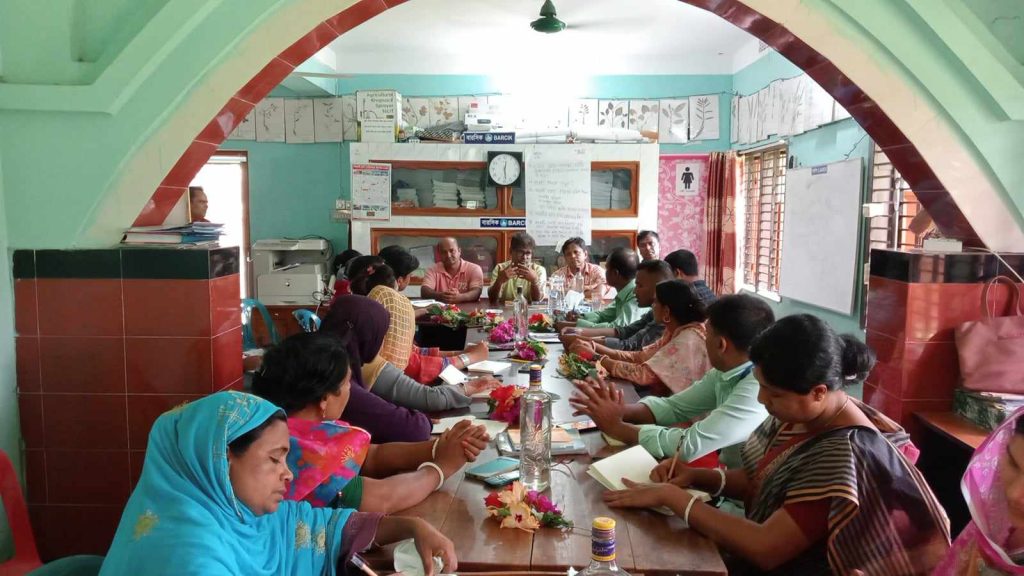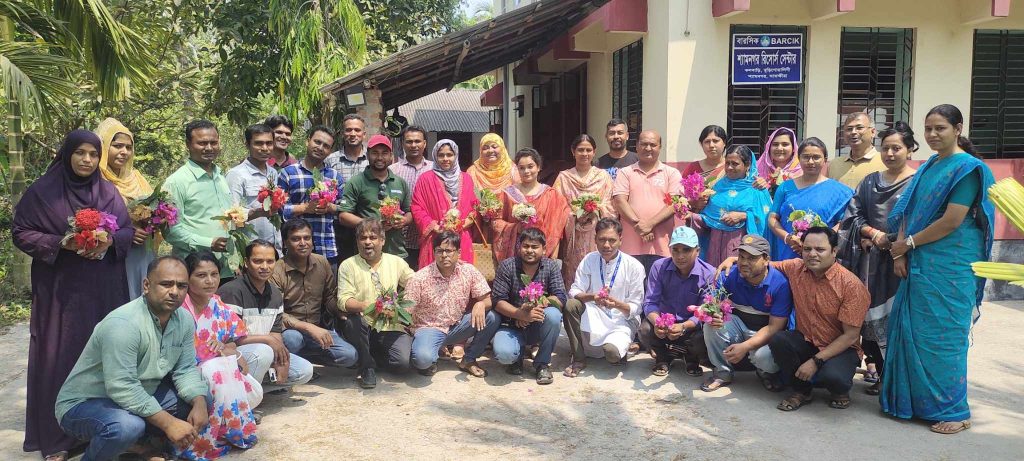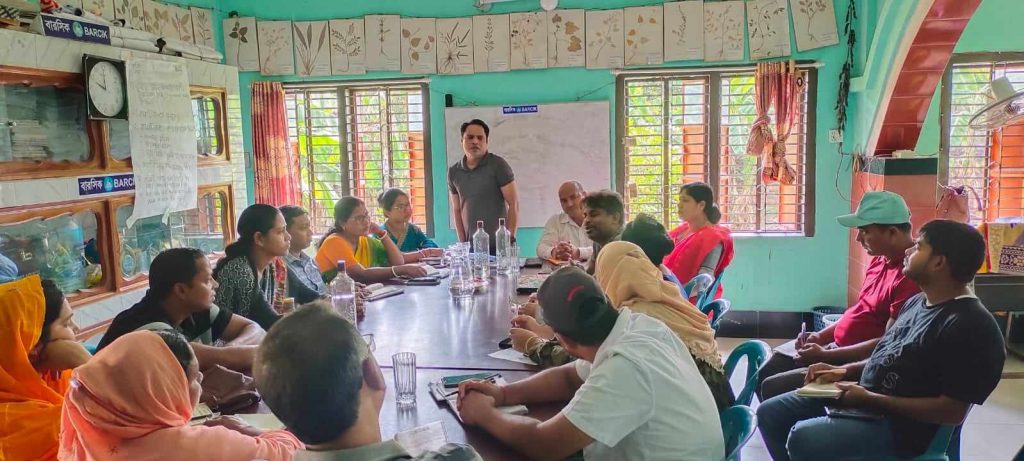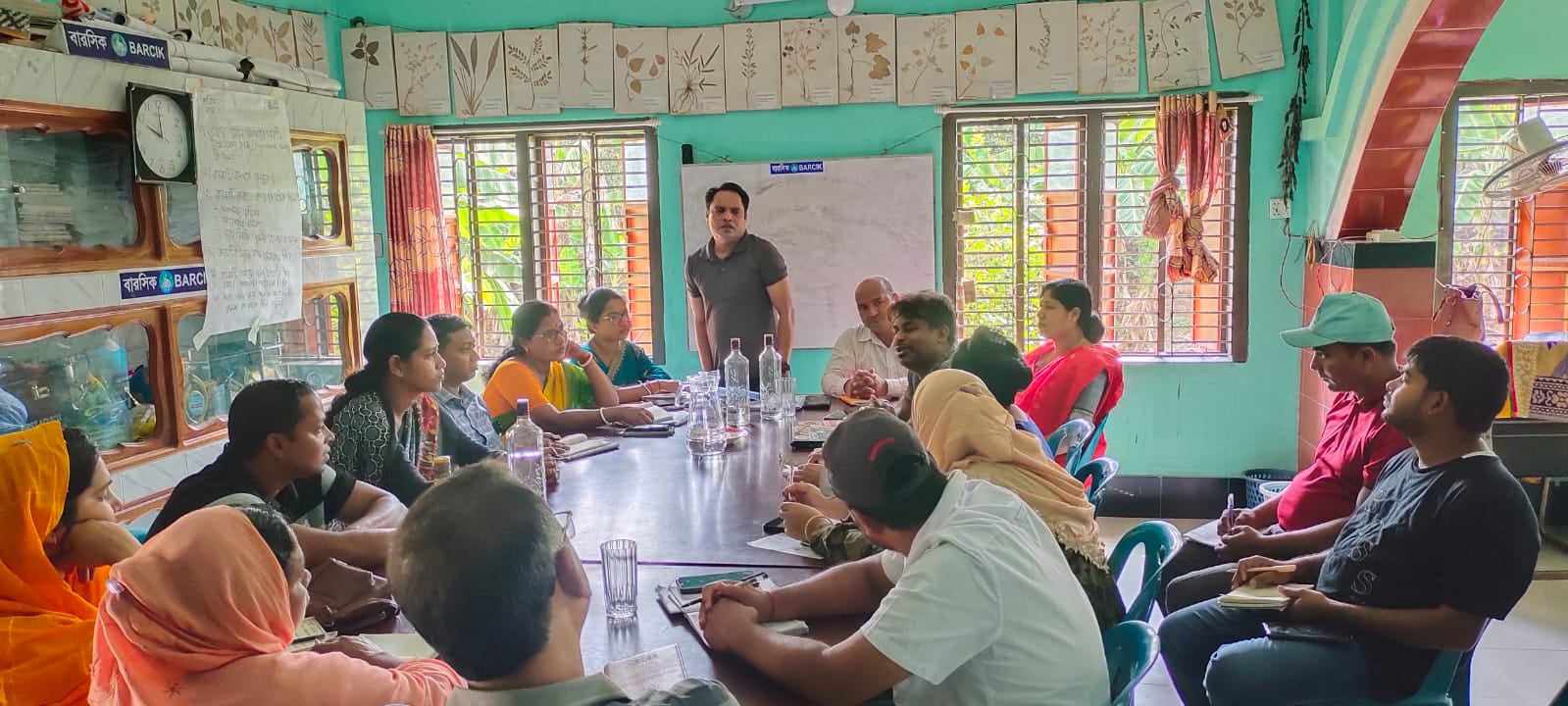By Biswajit Mondal and Monika Paik Shyamnagar, Satkhira
A three-day training workshop on Agroecology, Climate Justice, and Food Sovereignty was held in Shyamnagar, Satkhira recently, organized by BARCIK. BARCIK staff from the coastal region participated in the workshop. The workshop was facilitated by BARCIK Director and Researcher Pavel Partha and Syed Ali Biswas, Coordinator Jahangir Alam, and Associate Coordinator Ramkrishna Jowardar.

On the first day, participants presented their significant activities carried out in 2024 under the agroecology project. They described their work, roles, and names of those involved, key outcomes, opportunities for improvement, challenges faced, how those were overcome, and future suggestions. Following this, the facilitators discussed the goals, objectives, and expectations of the agroecology project. They also introduced key concepts related to environment and ecosystem, environmental components, food security and sovereignty, the practice of agroecology, local knowledge, ecosystems, food chains, and climate justice.

On the second day, the facilitators shared BARCIK’s vision, mission, areas of operation, and working methodology. A detailed presentation was made on both past and ongoing project-based activities in the coastal region. Discussions included practical research under the current project, agroecology learning centers, Shotobari (Nutrition Bank), trainings, awareness programs, relevant policies, potential areas for future research, and activities to be included in upcoming plans. Later, participants visited the agroecology learning centers (ALCS) in Pankhali and Srifolkati, which are regarded as key spaces for learning and practicing eco-friendly initiatives.

On the third day, participants provided recommendations for the improvement of the visited learning centers. Strategies were developed on how to implement and interlink various project activities under specific project heads. A draft one-year action plan was prepared, outlining the activities, budget, and responsibilities according to specific codes. Priority was given to implementing each program based on the needs of respective areas. Additionally, various environmentally friendly initiatives were recommended to preserve soil, water, and air, while emphasizing the need to enhance interconnections among local community resources.

